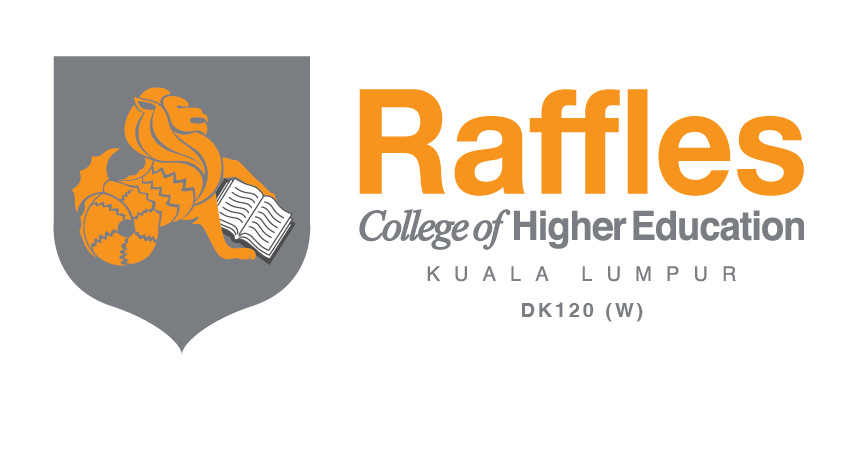
Image credit: (Unsplash & Crazy Cake, 2024)
In today’s education environment, academic achievement is often celebrated as the ultimate goal, while emotional regulation is treated as secondary, or worse, overlooked entirely. Yet emotional regulation is the foundation upon which true learning and growth stand. A student who can manage stress, frustration, and self-doubt is far more likely to sustain focus, adapt to challenges, and maintain healthy relationships. Without this skill, even the brightest minds can falter under pressure. It is no surprise that our current education framework places greater emphasis on academic achievement while giving minimal attention to character formation. Even when schools attempt to teach moral or emotional skills, such as the Moral Studies (Pendidikan Moral) curriculum in Malaysian schools, the approach is often theoretical, delivered like any other academic subject. It typically lacks genuine modelling, guided reflection, or experiential emotional training. More importantly, it teaches what is “right or wrong” but not why we feel or behave the way we do.
Understanding why we feel or behave the way we do is crucial, yet even the brightest adults often struggle as a consequence of this curricular limitation. Our teenagers grow up excelling academically but lack key aspects of character such as resilience, virtue, grit, and empathy. These shortcomings become evident when they reach higher education, a platform that challenges individuals in the areas aforementioned. Adolescence and emerging adulthood represent periods of intense biological, social, and emotional change, as noted by numerous developmental psychologists such as Erik Erikson and Laurence Steinberg. During this stage, young adults experience powerful emotions such as anger, excitement, curiosity and passion, but often lack the guidance to express or manage them responsibly. Instead of learning how to regulate their emotions, they learn to suppress or conceal them. Worse still, adolescents who display emotional outbursts are frequently penalized or labelled as “problematic,” reinforcing the notion that strong emotions are unacceptable.
The Silent Pressure Cooker: The Hidden Cost of Emotional Suppression
While emotional suppression may appear effective in structured environments like schools,where discipline, authority, and external monitoring maintain behavioral control, thisregulation is only temporary. Once these individuals enter college or the workforce, where there are greater autonomy and less supervision, suppressed emotions tend to resurface. It is like sealing a pressure cooker without a release valve only for the steam to build quietly until it inevitably explodes.
Research has increasingly highlighted the emotional struggles faced by adolescents, supporting the idea that many learn to suppress rather than regulate their emotions. For instance, qualitative analyses reveal that Malaysian youths often conceal emotions due to fear of rejection, parental expectations, and academic pressure (Hasni et al., 2025). This pattern continues into higher education, where poor emotional regulation, especially expressive emotional suppression is linked to challenges in academic performance and well-being (Hafizah, 2015). Relatedly, studies have demonstrated that emotional intelligence (EI) is closely associated with academic outcomes. A Peruvian study with 154 nursing students found that emotion regulation, a key component of EI, mediated the link between course failure and academic burnout, a recognized risk factor for dropout (Merino-Soto et al., 2024).A Malaysian study involving 370 Form Four (16-year-old) students revealed significant associations between EI dimensions and academic achievement, suggesting that the ability to identify and manage emotions supports better learning outcomes (Zainal & Junaidi, 2014).Furthermore, as graduates transition into the workplace, many are found to lack emotional resilience and psychological capital, factors critical for adjusting to work demands and sustaining performance (Wan Shahrazad Wan Sulaiman, Shariff & Khairuddin, 2023).Collectively, these findings suggest that emotional suppression among adolescents and young adults is not merely an individual issue but one reinforced by familial, cultural, employment-transition contexts.
Therefore, fostering emotional regulation should not be seen as a “soft skill,” but rather as afoundation that shapes resilience, moral character, and enduring self-esteem. Integrating emotional education through modelling, reflective dialogue, and experiential learning into formal education is essential to nurture individuals who are intellectually capable but also emotionally balanced.
Emotional Regulation: The Real Psychology Hack for Stronger Self-Esteem
A large review of self-esteem programs in American schools found that encouraging teachersto increase verbal praise had little to no lasting effect on students’ self-esteem (Baumeister,Campbell, Krueger, & Vohs, 2003). Genuine self-esteem, as Dweck (2006) emphasizes, develops through competence, effort, and mastery rather than superficial encouragement.
Emotional regulation plays a vital role in this process, whereby individuals who can manage their emotions are better equipped to handle criticism, stress, and failure without letting these experiences define their self-worth. For instance, a student who fails an exam but can reinterpret it as an opportunity for growth (“I can learn from this and do better next time”) maintains confidence and motivation. In contrast, those who suppress emotions or rumination failure tend to magnify negative feelings, leading to fragile self-esteem, a pattern increasingly seen among adolescents in today’s social-media-driven world (Li, He, Ye, & Xu, 2024).
The answer lies in studying psychology, or at the very least, in understanding the dimensions of character development and valuing them as much as we do other areas of life. Studying psychology doesn’t just teach us about others’ behavior; it deepens our understanding of our own emotions, thoughts, and reactions.
At Raffles Institutions, psychology education goes beyond theory into real-life application. Students not only learn about emotions but also experience and practice emotional regulation.
Courses such as:
Cognitive Psychology, Personality, and Emotion & Motivation – develop self-awareness and metacognitive skills, helping students identify and manage maladaptive patterns such as rumination or emotional suppression.
Social Psychology and Developmental Psychology – cultivate empathy, perspective-taking, and emotional maturity, fostering compassion-based regulation that reduces stress and anger (Neff, 2003).
Counseling Techniques and Health Psychology – equip students with evidence-based strategies like cognitive reappraisal, mindfulness, and behavioral activation enhancing both professional competence and personal emotional stability.
The Raffles Institutions psychology program empowers students not only to understandemotions scientifically, but also to develop healthy emotional regulation skills in their ownlives. Through assignments such as reflective journals, counseling practicums, and groupdiscussions, students actively learn to recognize and regulate their emotional responses.These experiences build emotional intelligence, resilience, and self-awareness. Equipped with these qualities, our graduates are not only prepared to excel in their careers but also to drive the meaningful change this generation desperately needs.
Raymond Augestin
Psychology Lecturer
References
Baumeister, R. F., Campbell, J. D., Krueger, J. I., & Vohs, K. D. (2003). Does high self-esteem cause better performance, interpersonal success, happiness, or healthier lifestyles? Psychological Science in the Public Interest, 4(1), 1–44.
https://doi.org/10.1111/1529-1006.01431
Dweck, C. S. (2006). Mindset: The new psychology of success. Random House.
Gross, J. J. (1998). The emerging field of emotion regulation: An integrative review. Review of General Psychology, 2(3), 271–299. https://doi.org/10.1037/1089-2680.2.3.271
Hafizah, H. (2015). Emotional regulation and academic performance among Malaysian university students. [Master’s thesis, University Kebangsaan Malaysia].
Hasni, M. M. M., Sahimi, H. M. S., Abd Hadi, N. H., Adilun, N., Midin, M., Khairuddin, K. F., Badayai, A. R. A., Shah, S. M. Y. A., & Jaafar, N. R. (2025). Challenges in regulating emotion among Malaysian adolescents: A qualitative secondary data analysis. Medicine & Health UKM, 20(2), 788–804. https://doi.org/10.17576/MH.2025.2002.26
Li, X., He, Y., Ye, K., & Xu, H. (2024). The bidirectional relationship between rumination and self-esteem: Evidence from longitudinal tracking and diary methods.Studia Psychologica, 66(3), 193–206. https://doi.org/10.31577/sp.2024.03.900
Merino-Soto, C., Angulo-Ramos, M., Llaja-Rojas, V., & Chans, G. M. (2024). Academic performance, emotional intelligence, and academic burnout: A cross-sectional study of a mediational effect in nursing students. Nurse Education Today, 139, 106221. https://doi.org/10.1016/j.nedt.2024.106221
Neff, K. D. (2003). Self-compassion: An alternative conceptualization of a healthy attitude toward oneself. Self and Identity, 2(2), 85–101. https://doi.org/10.1080/15298860309032
Wan Shahrazad Wan Sulaiman, Shariff, M. I. A., & Khairudin, R. (2023). The role of psychological capital in flourishing among job seekers: Grit as a mediator. Psikohumaniora: Jurnal Penelitian Psikologi.
https://doi.org/10.21580/pjpp.v8i1.14939
Zainal, A., & Junaidi, A. (2014). Hubungan antara dimensi kecerdasan emosi dengan pencapaian akademik pelajar.Jurnal Pendidikan Malaysia, 39(1), 23–31.







